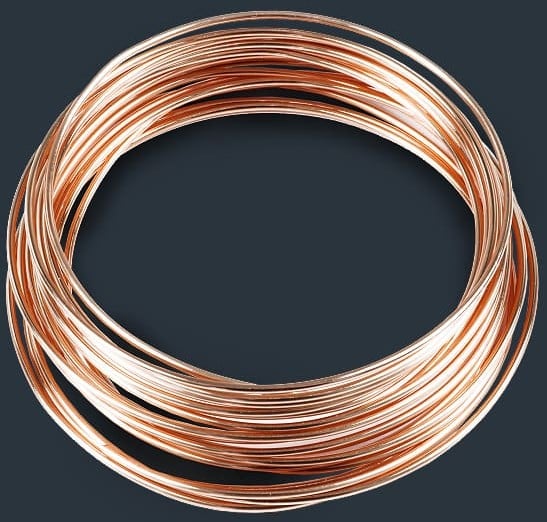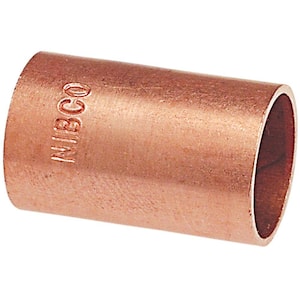Explore the Perks of Using High-Quality Copper Products for Home and Industry
Discovering the Diverse Applications of Copper Products in Modern Industries
Copper products have established themselves as vital parts throughout a myriad of modern-day sectors, largely as a result of their exceptional conductivity, pliability, and resistance to rust. From improving the efficiency of electrical systems to playing a critical role in renewable resource technologies, the flexibility of copper is evident. Furthermore, its recyclability positions it as a sustainable option in production and electronic devices. As markets increasingly focus on development and sustainability, the diverse applications of copper call for a closer exam, especially concerning their prospective effect on future technological developments and ecological methods.
Electric Applications of Copper
Copper is a vital material in the electrical sector, accounting for roughly 60% of the total demand for non-ferrous metals worldwide - Copper Products. Its premium electrical conductivity, which is almost twice that of aluminum, makes it the preferred choice for a wide variety of electric applications. From circuitry systems in domestic and industrial buildings to high-voltage power transmission lines, copper makes certain efficiency and dependability in electricity distribution
In enhancement to circuitry, copper is important to the production of electric components such as generators, transformers, and motors. These components take advantage of copper's thermal conductivity and malleability, vital for warm dissipation and efficient efficiency. Additionally, copper's resistance to rust improves the life expectancy and sturdiness of electrical systems, making it an economical remedy in the long-term.
The growth of renewable resource sources, such as solar and wind power, has actually additionally raised the need for copper in electrical applications. As sectors shift towards lasting power solutions, copper's function comes to be also extra important. On the whole, the flexibility and performance characteristics of copper solidify its condition as a keystone material within the electrical field, driving innovation and performance across various applications.
Plumbing and Piping Solutions
In modern-day plumbing systems, the choice of products dramatically influences both functionality and long life. Copper has emerged as a recommended choice as a result of its one-of-a-kind buildings, consisting of rust resistance and antimicrobial features. These features guarantee that copper piping remains resilient and risk-free for delivering safe and clean water, an important consideration in domestic and business applications.
One of the crucial advantages of copper in plumbing is its capability to withstand high temperature levels and stress, making it appropriate for a selection of applications, from warm water systems to heating and cooling down networks. Furthermore, copper's versatility enables less complicated installment in complicated piping layouts, decreasing the threat of leaks and failures.
One more noteworthy benefit is copper's long life-span, typically surpassing 50 years with correct maintenance. This long life not just lessens replacement prices but also contributes to lasting practices by decreasing waste. In addition, copper's recyclability aligns with contemporary ecological requirements, advertising a round economic climate within the pipes market.
Copper in Renewable Energy
The convenience of copper extends past pipes applications, playing an important duty in the renewable energy field. In solar panels, copper is made use of in photovoltaic or pv cells and wiring, assisting in efficient energy conversion and transmission.

Additionally, as the global demand for electric lorries (EVs) boosts, copper's role in battery systems and charging facilities ends up being much more substantial. The material's capacity to conduct electrical power efficiently is indispensable to the check these guys out efficiency of EV batteries, enhancing array and billing rate.
Copper's Function in Electronic devices
Electronics manufacturing depends heavily on copper's outstanding residential properties, especially its high electric conductivity and thermal efficiency. These characteristics make copper a suitable selection for a large range of digital components, including ports, motherboard, and electrical wiring. The metal's capacity to efficiently transmit electrical signals makes certain very little power loss, which is crucial in high-performance electronic tools.
Additionally, copper's thermal conductivity plays a substantial role in warm dissipation, securing sensitive components from overheating. This is specifically essential in modern electronic devices, where small designs result in increased heat generation. Copper is also favored for its malleability and ductility, enabling it to be easily formed right into elaborate layouts that satisfy the needs of innovative electronic applications.
With the increase of customer electronics, telecoms, and electrical vehicles, the need for copper in the electronic devices market proceeds to expand. As advancements in technology advance, copper continues to be important to achieving higher efficiency and reliability in electronic items. Its recyclability additionally enhances its charm, as suppliers look for sustainable remedies without compromising quality. Thus, copper remains a cornerstone product in the ever-expanding field of electronics.
Cutting-edge Makes Use Of in Production

One significant More Info application is in additive manufacturing, where copper-based materials are utilized in 3D printing processes. This enables the production of complicated geometries and lightweight components, specifically in the aerospace and automobile sectors. Additionally, copper's thermal conductivity makes it a suitable selection for warmth exchangers, improving effectiveness in industrial cooling systems.
Moreover, the increase of clever manufacturing has actually seen the unification of copper in IoT tools, where its conductive capabilities sustain innovative picking up innovations. In the realm of renewable resource, copper is critical in the production of photovoltaic panels and wind turbines, facilitating a lot more effective energy conversion and distribution.
As sectors pursue sustainability and read here innovation, copper's adaptability and performance remain to place it as a crucial material, driving innovations in manufacturing and adding to the growth of smarter, extra efficient items.
Verdict
The important duty of copper in sustainable energy and its essential feature in electronics emphasize its value in advancing sustainable methods. Collectively, these applications illustrate copper's important payment to technological progression and industrial performance in contemporary society.
From improving the efficiency of electrical systems to playing an important role in eco-friendly power modern technologies, the versatility of copper is apparent. As sectors increasingly focus on development and sustainability, the varied applications of copper necessitate a closer assessment, particularly concerning their potential influence on future technical advancements and environmental techniques.
The growth of renewable power sources, such as solar and wind power, has actually further raised the demand for copper in electric applications. In general, the convenience and performance qualities of copper solidify its condition as a keystone product within the electrical field, driving advancement and performance throughout various applications.
The convenience of copper expands past pipes applications, playing an essential duty in the renewable energy industry.